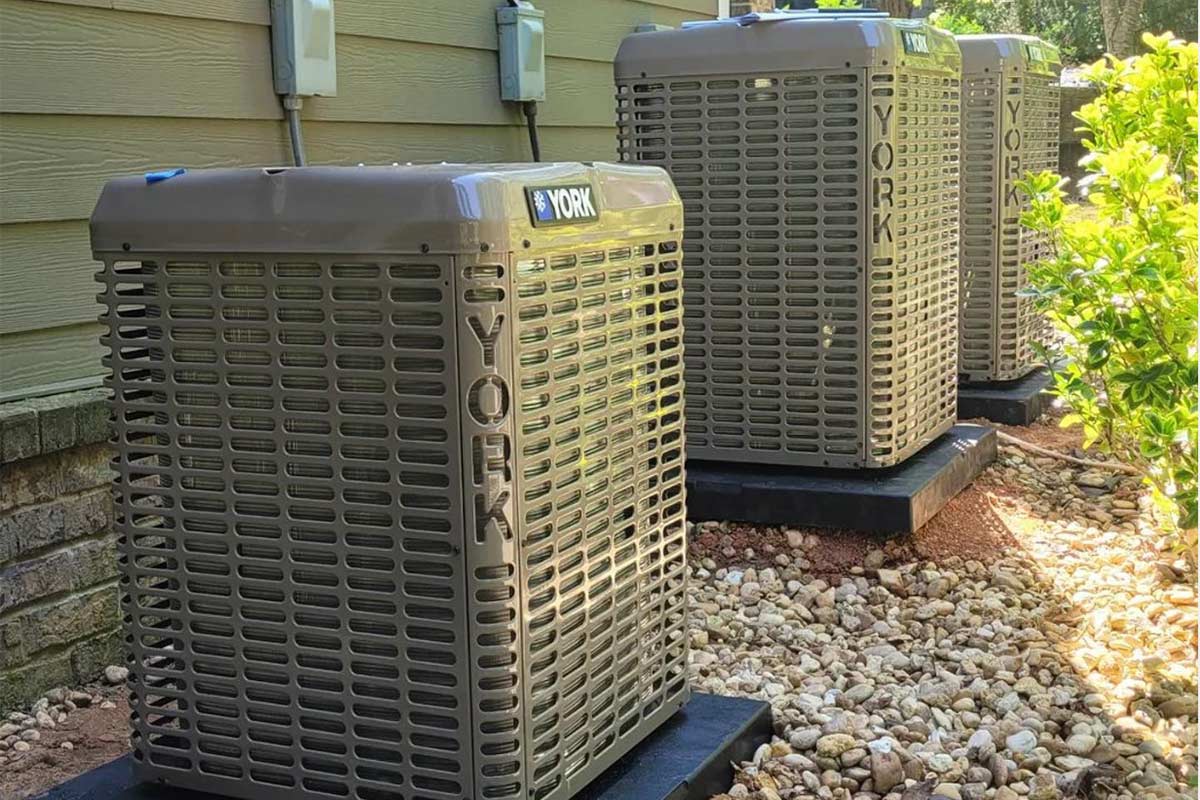
Proper HVAC Size for Your Home?
The good news is that, while it’s hard to put a monetary value on comfort, you can most certainly calculate what you will need to achieve it in your home. That is because there are plenty of established parameters that answer the question: What size HVAC unit should I get for my home?
When you take the steps to answer that question, you can rest assured that you will find the perfect heating and air conditioning solutions – ones that will deliver home comfort day after day, no matter the conditions outside. But what are these parameters? How do you establish them? And what do you do after you answer them?
Let’s take a look and find out.
HVAC basics
Air conditioning and heating units come in a wide range of sizes and efficiency ratings, and a savvy homeowner – as well as an attentive, knowledgeable, and flexible HVAC contractor – can ensure the perfect fit for any size home by making different measurements.
(NOTE: No matter how much groundwork you do on your own, you will almost certainly need an HVAC contractor to step in at some point. Installing a new HVAC system – in an old home or new construction – is an extraordinarily intricate job that requires both detailed knowledge and experience. That is why, after tabulating sizes and efficiencies, it is important to choose the right HVAC contractor, one that will see your wishes through to the end. That is why it is just as important to judge HVAC contractors as the hardware they install.)
There are some basic rules to follow when choosing the right size home comfort system – and most of them are based on energy and efficiency. In order to understand this, you need to familiarize yourself with the acronyms SEER and BTUh.
SEER – Seasonal Energy Efficiency Ratio (SEER) – This rating measures an air conditioner’s cooling output divided by total energy used. Averaged over an entire year, it yields the maximum efficiency of a unit. The higher the SEER, the more efficient the unit. The lowest SEER number for modern whole-home air conditioners is around 14 (which is perfectly acceptable), but more efficient multi-stage units can reach SEERs of 23 and above. And by increasing the SEER number you may pay more up front, but you will end up paying less in electrical bills – which could eventually yield a cheaper system over the long haul.
BTUh – British Thermal Units per Hour – Details how much energy an HVAC system uses to remove heat from an enclosed structure within one hour. A cooling capacity of one ton is equal to 12,000 BTUh. Home air conditioners have a tonnage rating. Those ratings create a scale of 1-5 with increments of .5. That is why you sometimes see rules such as, “a 600-1,000 square foot home requires a 1.5-ton air conditioning unit.” The scale then slides accordingly:
1,000-1,500 square feet – 2 tons
1,500-2,000 – 3 tons
2,000-2,500 – 4 tons
2,500-3,300 – 5 tons
Now, don’t think that just because you can afford to spend more money on size that you should. Comfort depends on delivering the right amount of air throughout your home, and if you have too large or too a system in your home it will struggle to maintain the air pressure necessary to flow evenly throughout your home. It will also work extremely inefficiently, constantly turning on and off and eventually costing you more in electricity bills.
There are other things you can do to help best determine the size and efficiency of the HVAC you require, including judging the energy efficiency of the structure of your home (if already built).
That means you should look at things such as the number of windows you have, the number of doors you have, the condition of your ductwork (is it in good shape or leaking?), and the amount of insulation you have.
In fact, you can have your utility company come to your home and perform an energy audit – what is known as a Manual J calculation.
The Manual J calculation takes into account your all home and environmental characteristics in order to provide a crystal-clear look at what your home requires in order to achieve maximum comfort from an HVAC system.
As you can see, achieving the most efficient comfort is about more than just buying the best and biggest system. There are numerous calculations and factors to consider – which is why it is important to have an idea of what you’re looking for, as well as an HVAC contractor that caters to your needs, offers flexibility to able to provide exactly what you need, and the understanding of how to do the job right.
While much has changed in the heating and air conditioner business over the past four decades, that commitment to the customer and the job are still as true today as they were when Conditioned Air Systems opened its doors in 1983. Adhering to those beliefs – such as putting the customer first and utilizing only top-quality equipment – is why we have grown so much and are still here ready to serve your needs.
Please give us a call today and see what has made Conditioned Air Systems the choice for so many homeowners across north Georgia and metro Atlanta. We have made our reputation on providing the ultimate home comfort and are ready to do the same for you. Simply call us today at 770-536-7509.
Ensure Your Home’s Temperature is Stable Year-Round

